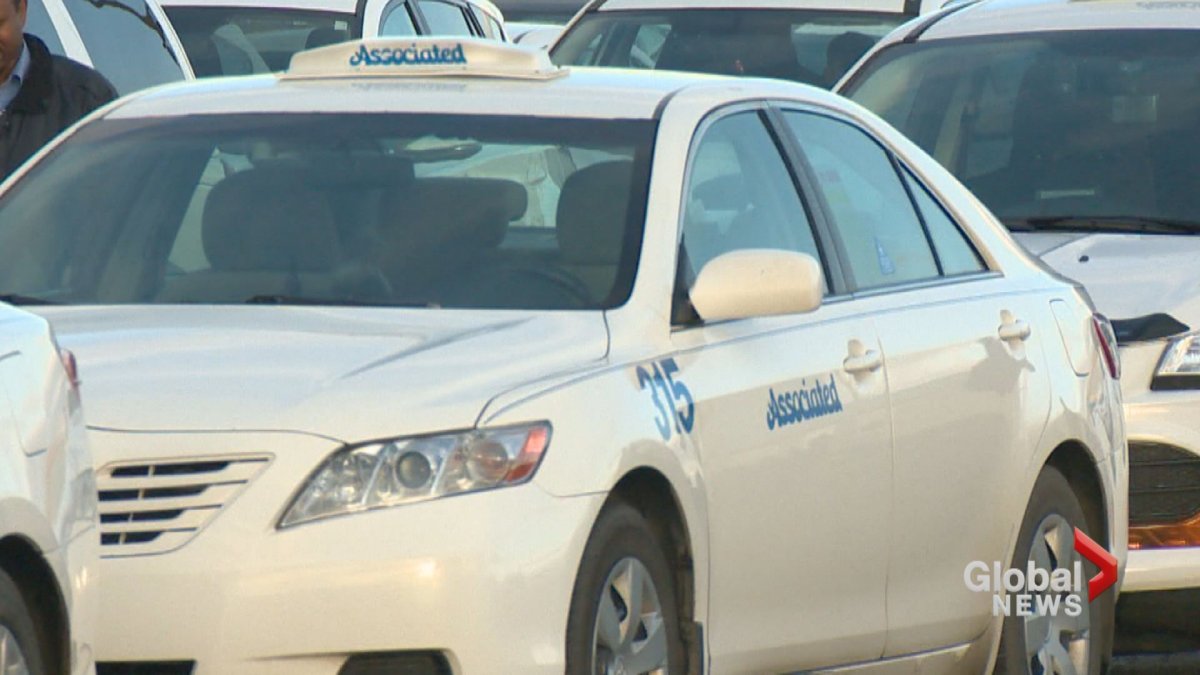Changes to the city’s bylaw governing taxis, limousines and transportation network companies (TNCs) — also known as ridesharing — could help reduce fees paid by taxis and standardize matters like safety and training.

But opinions are mixed on how effective alterations to the Transport Livery Bylaw would be in leveling the playing field with the coronavirus pandemic as the backdrop.
Wednesday, a city committee approved proposed changes to the bylaw that streamline the licence application process for taxi and limo drivers and reduce some of their fees by up to 72 per cent.
Other changes would mandate that rideshare vehicles be more clearly identifiable with decals and allow for taxis to offer upfront pricing.
Larger stretch limousines would have to meet city safety requirements, with more consistent safety inspection standards across the sector.
A new online training fee of $95 for all drivers — taxi, limo and rideshare alike — would be introduced in 2022. The city has been conducting online training for free since 2020, with more than 900 drivers taking those classes. Drivers opting for in-class training would be charged $320.
City council has yet to approve changes to the bylaw in an upcoming meeting.
Chair of the community and protective services committee and Ward 9 Coun. Gian-Carlo Carra said the proposed bylaw changes help two competing industries.
“This is a triumph of administration working with two industries that are at war with each other, that are locked in a terrible battle,” Carra told reporters.
In 2020, city council approved cutting fees for taxis and limos in half to help the industry through the pandemic.
On Monday, council will be presented with the decision to provide a second year of the same kind of relief using the city’s COFLEX funding — city reserves earmarked to help city operations through the pandemic.
The planned reduction in fees in 2022 would be not only a reduction from the existing fee schedule, but also a reduction if council approved fee relief in 2021.
Uber, taxi companies weigh in
Uber, who first entered Calgary in 2016, took issue with the cost of mandatory driver training, saying it would be “cost prohibitive” for drivers new to the ride sharing app.
“We want to urge the committee to reject this fee or, at a minimum, consider a 24-month deferral until Calgary is on the other side of the economic recovery,” Yanique Williams, public policy manager for Uber Canada, told the committee.
Williams said Calgary has the highest aggregate fees in Canada and the reduction in some licence fees “is dwarfed” by the proposed training fees.
Williams also voiced Uber’s objection to requiring a more visible company logo on the outside of the vehicle, instead preferring that customers and enforcement confirm drivers and vehicles using their app and the licence plate number.
Jeffrey Garland, GM of Associated Cabs, said a lot of stakeholders in the cab industry haven’t been heard.
“Through COVID-19, more than 70 per cent of the livery industry still isn’t back to work today,” Garland told the committee. “And a lot of these people haven’t had an opportunity to see these changes going forward that are going to affect their future and livelihoods.”
Garland said the proposed bylaw changes didn’t address industry concerns over fairness and competition with ridesharing.
“We’re losing more and more drivers because the cost to operate just keeps going up and up, and there’s no competitive advantage anymore for anybody,” he said. “The only competitive advantage is for the rideshare companies.”
Garland pointed to the cap on the number of licenced taxis compared to looser restrictions on rideshare vehicles, claiming TNC vehicles outnumber taxis three to one.

Natalie Young with the city’s community standards department said the city issued “about 1,800 to 1,900 (taxi licence) plates versus about 3,900 TNC driver’s licences issued at the end of 2020.”
“However, we have to keep in mind that not all TNC vehicles are on the road full time, that a lot of them are part-time drivers versus taxi vehicles being highly utilized,” Young told the committee.
Kurt Enders, president of Checker Cabs, agreed with Garland, saying there is “still an abundance of imbalance between TNCs and taxis,” but said he wasn’t “prepared to die on the sword over changes he disagreed with.”
Enders was happy to see fees for the taxi industry in 2022 being reduced by almost half on aggregate, saying it will provide “some great help” to drivers.
“But my real concern with the bylaw change is that the fee reduction does not come until 2022,” Enders told the committee. “It’s now one year since COVID-19 has hit our industry extremely hard and I’m not sure whether it will ever recover.”
Ward 5 Coun. George Chahal asked city officials what the conversation would look like before the city released more transport livery licence plates.
Young said the city plans on assessing industry and customer demand before coming to council with a request to release more plates.
“Before the pandemic, we’re seeing a really high level of satisfaction from customers and the level of service from both taxes and TNCs and limos,” Young told the committee.
“The overall economic situation in Calgary obviously affects the interest and demand for taxi plates.”
Carra said the proposed bylaw changes balance serving both the people who drive the vehicles and their customers.
“Calgarians have a lot of choices now and we’re trying to create an environment where the customer gets what they need and the people who are serving the customer are being treated fairly and eking out as good a living as as is possible in an ultra-competitive environment.”
And Chahal said as the city looks towards a post-pandemic recovery, consumer choice in sectors like individual transportation could impact that recovery.
“We talk about buying local, supporting local,” Chahal said. “Everybody who drives in the industry is local. They are the folks who live and work in our communities.
“The question you have to ask ourselves is when we support many of the businesses, where do the profits go and how are they supporting our local industries?”









Comments